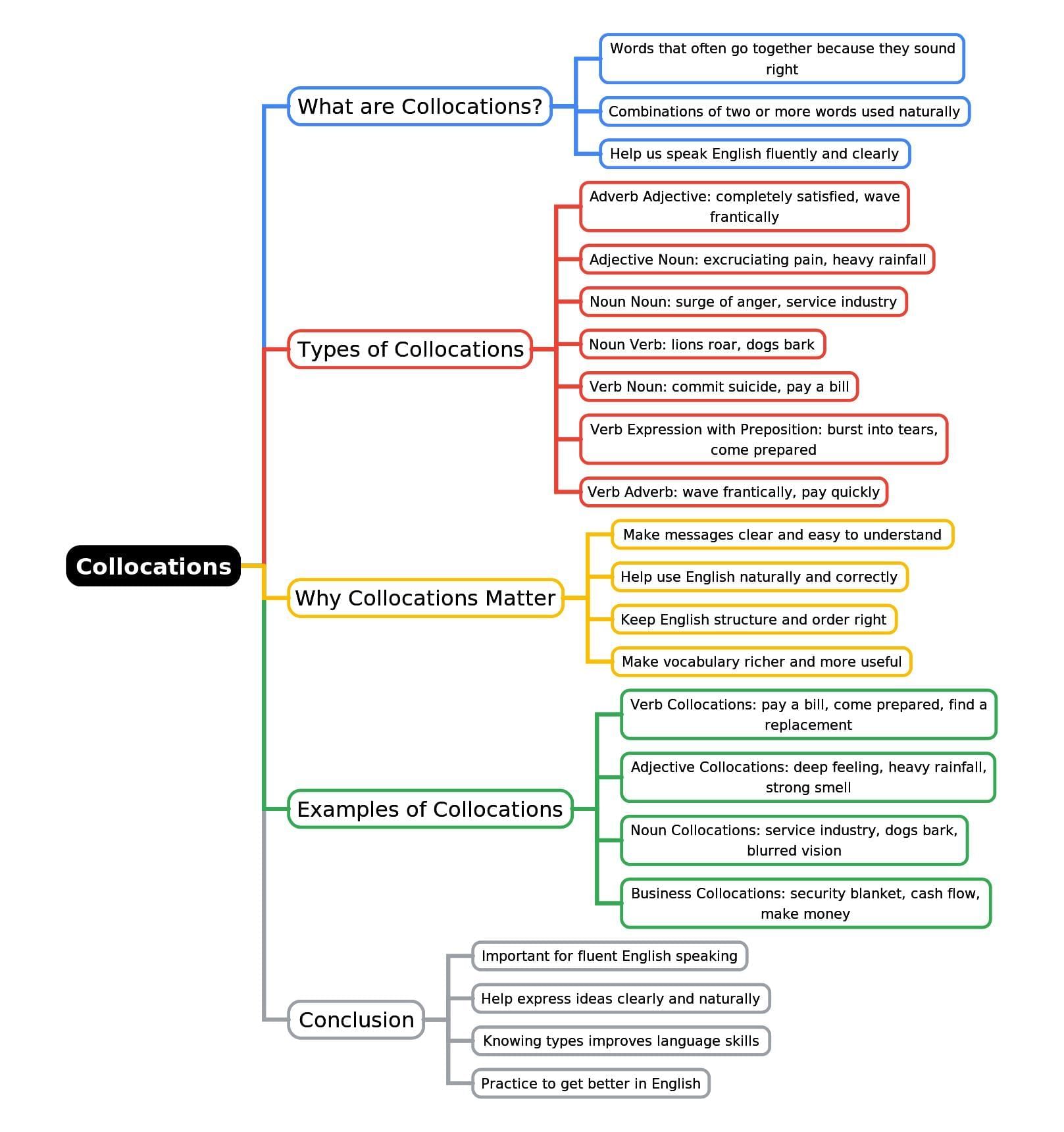Class 3 Exam > Class 3 Notes > English Olympiad for Class 3 > Mind Map: Collocations
Mind Map: Collocations | English Olympiad for Class 3 PDF Download

The document Mind Map: Collocations | English Olympiad for Class 3 is a part of the Class 3 Course English Olympiad for Class 3.
All you need of Class 3 at this link: Class 3
|
35 videos|57 docs|97 tests
|
FAQs on Mind Map: Collocations - English Olympiad for Class 3
| 1. What are collocations and why are they important in language learning? |  |
Ans. Collocations are combinations of words that frequently appear together in a language. They are important in language learning because they help learners sound more natural and fluent. Understanding collocations can also enhance comprehension, as native speakers often use them without thinking. For example, we say "make a decision" rather than "do a decision", and knowing such phrases can improve both speaking and writing skills.
| 2. How can I effectively practice collocations in my studies? |  |
Ans. Effective practice of collocations can include various methods such as reading extensively to encounter collocations in context, using flashcards to memorize common phrases, and engaging in speaking or writing exercises that specifically target collocations. Additionally, using online resources or collocation dictionaries can provide examples and context, helping learners to internalize these word combinations.
| 3. Are there specific types of collocations that learners should focus on? |  |
Ans. Yes, learners should focus on different types of collocations, including verb-noun (e.g., "make a mistake"), adjective-noun (e.g., "strong coffee"), and adverb-adjective (e.g., "highly effective"). By identifying and practicing these common combinations, learners can improve their vocabulary and make their speech and writing more dynamic.
| 4. How do collocations differ from idioms and phrasal verbs? |  |
Ans. Collocations differ from idioms and phrasal verbs in that they do not have a figurative meaning. Collocations are simply combinations of words that often go together, while idioms are phrases where the meaning is not deducible from the individual words (e.g., "kick the bucket" means to die). Phrasal verbs consist of a verb plus one or more particles, which can change the meaning of the verb (e.g., "give up" means to stop trying). Understanding these distinctions helps learners use language more accurately.
| 5. How can collocations enhance my writing for exams? |  |
Ans. Using collocations in writing for exams can greatly enhance clarity and coherence. They can make sentences sound more natural and fluent, which is often favored in grading. Additionally, incorporating a variety of collocations demonstrates a broader vocabulary and a deeper understanding of the language, which can positively impact the overall impression of the writing. Practicing collocations ahead of the exam can help students feel more confident in their writing abilities.
Related Searches





















